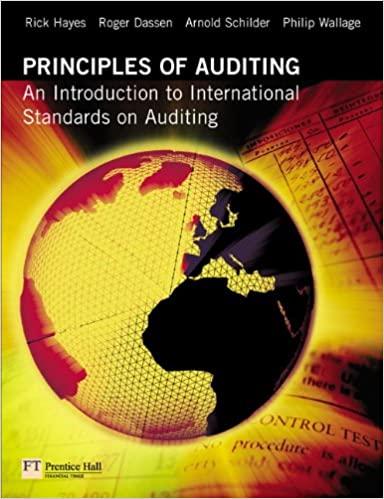Question
Before issuance, most corporate and governmental bonds receive a credit rating that usually ranges from a high of triple-A down to B-. Nearly all bond
Before issuance, most corporate and governmental bonds receive a credit rating that usually ranges from a high of triple-A down to B-. Nearly all bond ratings are issued by one of three credit rating servicesMoodys, Standard and Poors, or Fitch. A bond issuer selects and pays one or more of these companies to issue a credit rating on its bonds. Literally trillions of dollars are invested each year in the bond market, in part based on the credit ratings issued by these private, for-profit companies.
Because bond issuers select and compensate the rating services that evaluate their creditworthiness, these agencies have an overwhelming conflict of interest. Critics contend that these credit rating services enhance their ability to generate repeat business by giving bond issuers unduly favorable evaluations. Supporters of the current system disagree, noting that these companies survival depends upon them maintaining reputations for credibility and objectivity.
- Nearly 99% of all bond issuances are rated by one or more of these three companies. Thus, these ratings companies are a classic oligopoly. Does the oligopoly power of these companies enhance, or harm, their ability to give objective credit ratings?
Step by Step Solution
There are 3 Steps involved in it
Step: 1

Get Instant Access to Expert-Tailored Solutions
See step-by-step solutions with expert insights and AI powered tools for academic success
Step: 2

Step: 3

Ace Your Homework with AI
Get the answers you need in no time with our AI-driven, step-by-step assistance
Get Started


